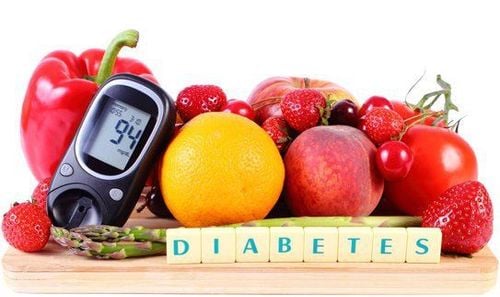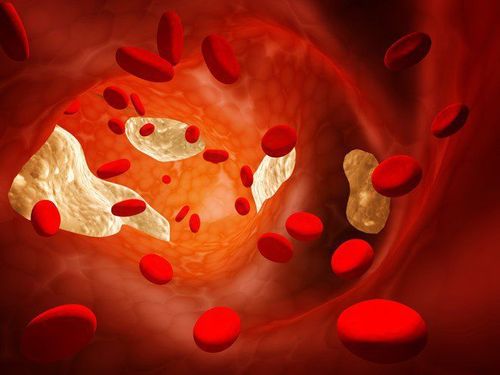This is an automatically translated article.
The article was professionally consulted by Specialist Doctor II Nguyen Xuan Thang - Deputy Head of Department of Medical Examination & Internal Medicine and Head of Internal Medicine Unit - Department of Examination & Internal Medicine - Vinmec Central Park International General HospitalAlthough eggs are high in nutrients, eating a lot of eggs can also raise cholesterol. This affects people with diabetes. It is necessary to adjust the eating of eggs reasonably to both ensure nutrition and limit disease.
1. Should You Eat Eggs When You Have Diabetes?
Eggs are a functional food and an excellent source of protein.
The American Diabetes Association considers eggs a great choice for people with diabetes. That's because one large egg contains about half a gram of carbohydrates, so it's unlikely to raise blood sugar.
Although eggs contain high cholesterol - A large egg contains nearly 200 mg of cholesterol, but this does not cause a large effect on the blood sugar of the patient.
Monitoring cholesterol is very important because diabetes is a risk factor for cardiovascular diseases.
High levels of cholesterol in the blood also increase the risk of cardiovascular diseases. But the cholesterol diet does not bring much effect for patients. So it's important for anyone with diabetes to be aware of and minimize other heart disease risks.

2. The benefits that eggs can bring to people with diabetes
One whole egg contains about 7 grams of protein. Eggs are also an excellent source of potassium, which supports nerve and muscle health. Potassium helps balance sodium levels in the body, which improves heart health.
Eggs are rich in nutrients, such as lutein and choline. Lutein protects against disease, and choline is thought to improve brain health. Egg yolks contain biotin, which is important for healthy hair, skin and nails, as well as insulin production.
Free-range eggs contain a lot of omega-3, which is a beneficial fat for people with diabetes.
Eggs also help balance the waist. One egg contains only about 75 calories and 5 grams of fat, which is just 1.6 grams of saturated fat. Eggs are versatile, can be prepared in many different ways to suit preferences.
It is possible to make an already healthy food even better by mixing in tomatoes, spinach or other vegetables.
Here are better egg eating ideas for people with diabetes:
Hard boiled eggs are a great option to save time in the morning, make a batch at the beginning of the week. Don't waste too much time for a nutritious breakfast. Eating 1 to 6 eggs per week will not significantly affect cholesterol even in people at high risk of cardiovascular disease. Buy eggs rich in omega-3 which has a very good anti-inflammatory effect. Although rich in nutrients, eggs should only be consumed in moderation.
Trắc nghiệm dành riêng cho người mắc đái tháo đường: Chế độ ăn của bạn đã hợp lý chưa?
Người bị bệnh đái tháo đường cần phải quan tâm nhiều hơn đến cách tính toán khẩu phần ăn sao cho phù hợp với nhu cầu và tình trạng sức khỏe. Nếu chưa rõ, bạn có thể tìm hiểu kỹ hơn thông qua bài trắc nghiệm ngắn sau đây.3. Answering cholesterol concerns
In the past, eggs were considered an unhealthy food, as it was seen as a food with too high cholesterol. There were a lot of changes after that. Total blood cholesterol appears to be smaller than previously thought, and the role of dietary cholesterol is receiving more and more attention.
Family history may have more to do with cholesterol levels in the body than how much cholesterol is in food. The bigger threat to cholesterol levels is foods high in trans fats and saturated fats.
Do not consume too many eggs if you have diabetes. Current recommendations suggest that a person with diabetes should consume no more than 200 milligrams (mg) of cholesterol per day.
Some people without diabetes or heart health concerns can consume up to 300 mg per day. One egg has about 186 mg of cholesterol.
Trusty Source research shows that high egg consumption can increase the risk of developing type 2 diabetes and heart disease. Researchers believe that excessive cholesterol, when it comes from animal foods, can increase the risk of disease.
Since all cholesterol is found only in the yolk, if you are worried about affecting your cholesterol consumption, you can just eat the egg white. Many restaurants only use egg whites in all dishes. Cholesterol-free egg substitutes can be purchased in stores that are made with egg whites.
However, a variety of nutrients also exist in egg yolks. Examples include vitamin A, choline, omega-3, and calcium.

4. What is the right way to eat eggs?
If you have diabetes, you should limit your eggs, only eat every 3 weeks. If you only eat egg whites, you may find it easier to eat and eat more.
Preparation Note: A relatively harmless and healthy egg can turn out to be a bit harmful if it's fried in unhealthy butter or oil.
Boiling eggs in the microwave takes only a minute and requires no extra fat.
A hard-boiled egg is a protein-rich snack if you have diabetes. Protein will help fill you up without affecting your blood sugar. Protein not only slows digestion, it also slows glucose absorption. This is very helpful if you have diabetes.
Having lean protein at every meal and for an occasional snack is a smart way for anyone with diabetes.
As soon as you become familiar with the carbohydrate and sugar content of different foods, pay attention to the cholesterol and saturated fat levels in foods as well.
5. Daily Diabetes Tips
Mix? Warehouse? Hard-boiled? Whichever recipe you prefer, try to eat up to three of these recipes each week to take advantage of the protein and carbohydrates found in eggs. Aim for eggs from organic, pasture-raised or free-roaming hens for a boost of heart-healthy omega-3 fats. If worried about cholesterol, reduce your intake or use egg whites.
Please dial HOTLINE for more information or register for an appointment HERE. Download MyVinmec app to make appointments faster and to manage your bookings easily.
Articles refer to the source Healthline.com













